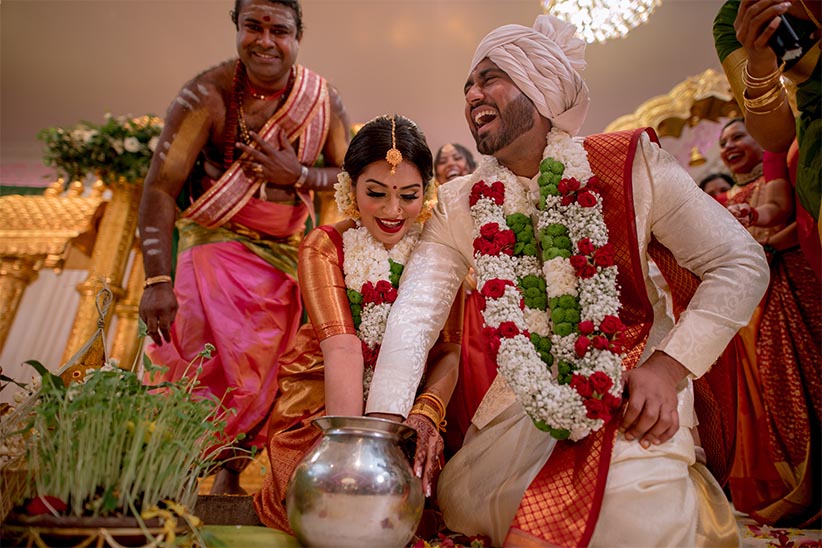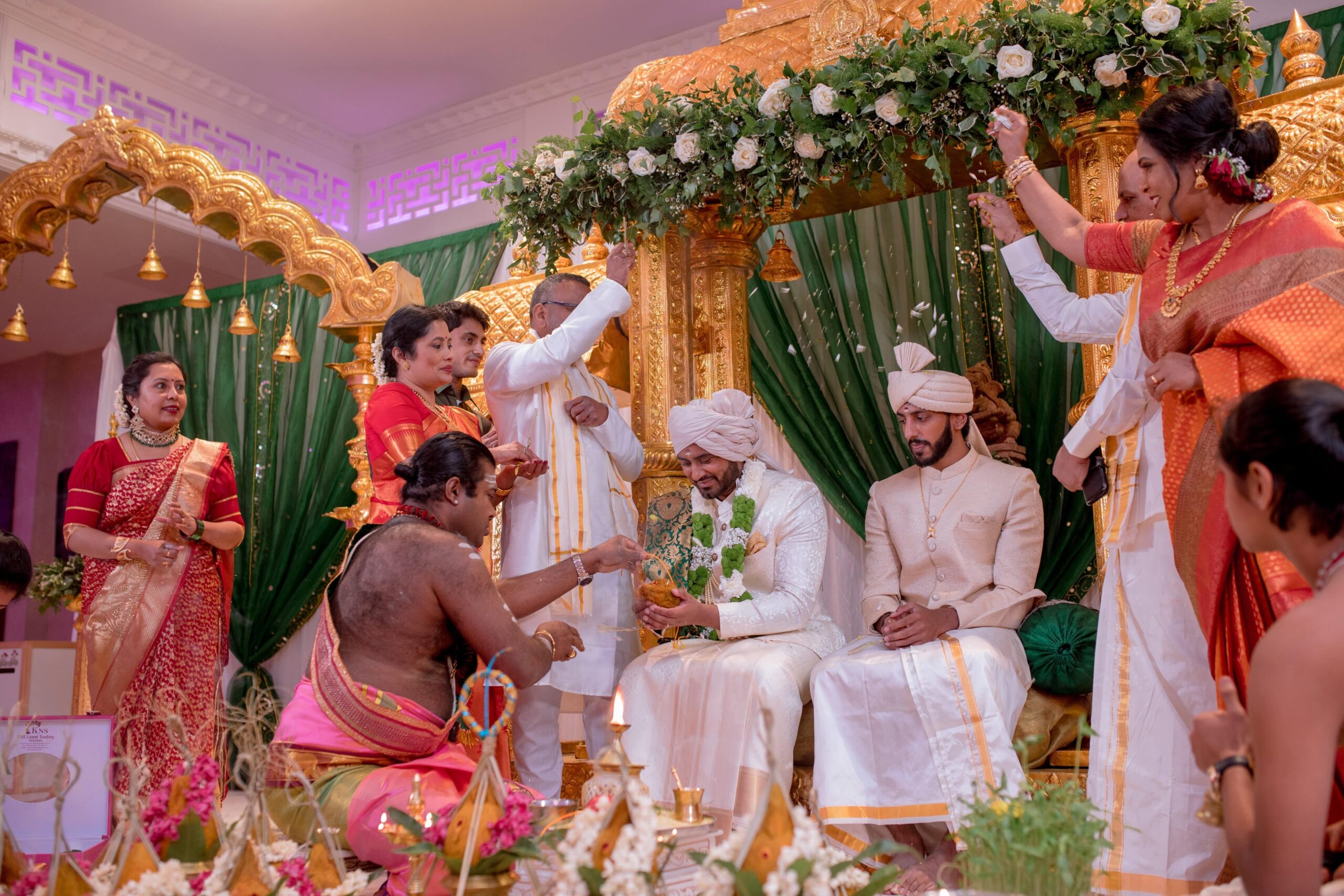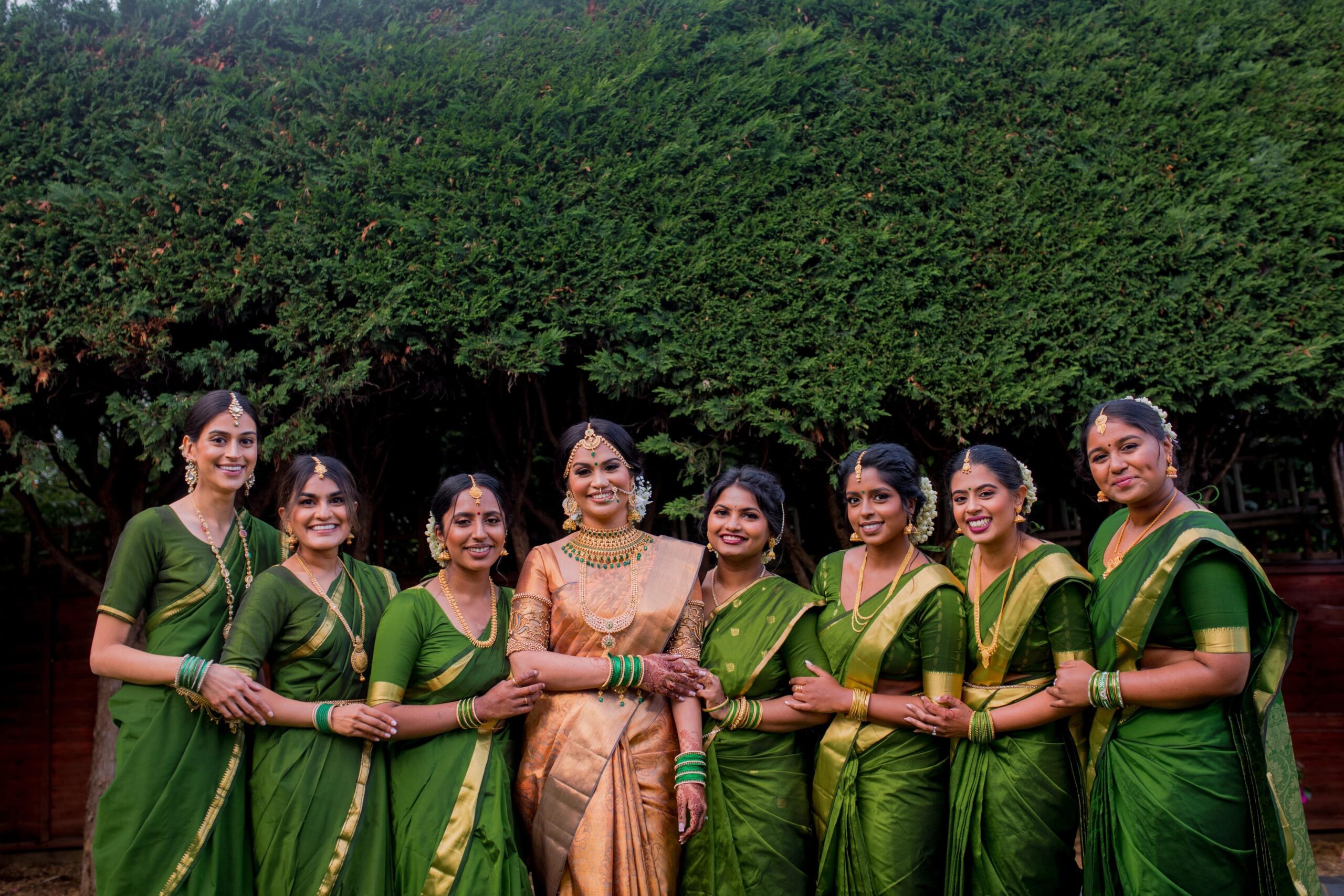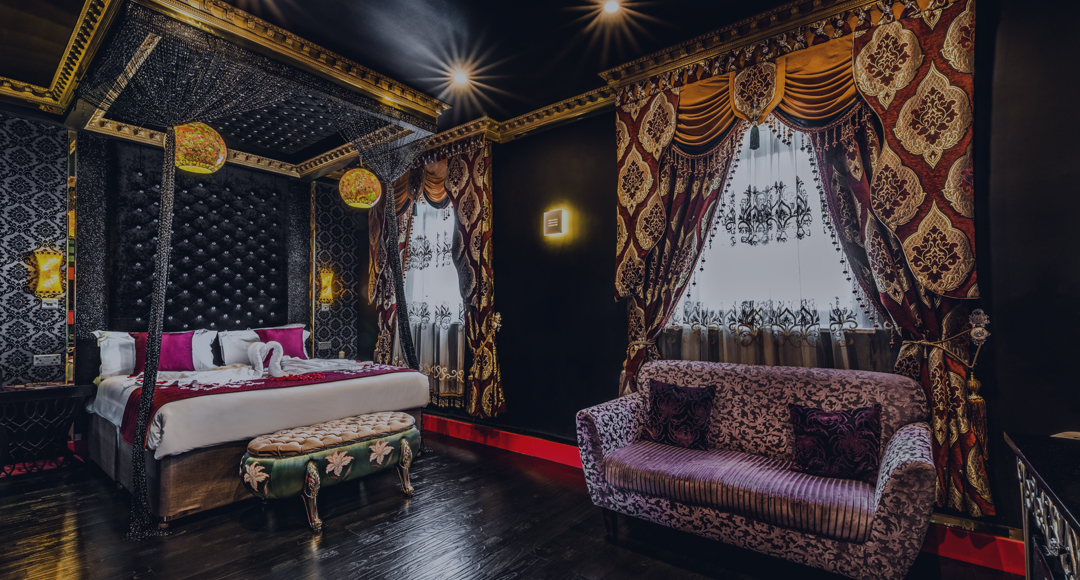The Best Gujarati Wedding Venue in London

The Best Gujarati Wedding Venue in London
Gujarati weddings are the true epitome of a colourful delight. With the touch of class, mouth-watering cuisine, delicate Bandhani art, amusing culture, and mystical music, one can enjoy a perfect Gujarati wedding. These events are jam-packed, taking place on fun-loving occasions with fascinating trends and rituals.
A typical Gujarati wedding usually lasts three to four days, where multiple rituals take place on different days. These days are filled with various rich and splendid customs from both families.
At Grand Sapphire, we promise you to provide an exquisite experience of Gujarati weddings in London. Ranging from cultural values and traditions to extremely delightful food, we offer a reliable experience by taking care of our guests and their families.
The Pre-wedding Rituals:

Making rituals and traditions memorable at a wedding is the dream of every person since it creates an ever-lasting impression on everyone. So let’s get through these rituals and get excited about the wedding:
Chando-Matli:
Chando-Matli, as the name suggests, consists of something sweet. This tradition is when the bride’s father brings offerings to the groom’s house. These gifts do include sweets of various kinds and Matli.
Furthermore, four integral members of the family accompany the bride’s father. First, the father-in-law performs the ritual by drawing a circle on the forehead of the groom with a red cinnabar. Everyone then feasts after this beautiful event.
Gol Dhana/ Sagai:
Gol Dhana or Sagai ritual is performed at the groom’s house, where the couple exchange rings. This ritual takes place a couple of days prior to the main event. This states the official engagement of the couple.
H3: Mehndi:
The bride’s place organises the Mehndi event. In this tradition, “Henna” is applied in a meaningful and impressive way to the hands and sometimes feet of the bride. Everyone believes that the deeper the colour of the Mehndi is, the more her husband will love her.
Moreover, this intimate gathering also includes women singing and dancing, making unforgettable memories.
Sangeet Sandhya:
A few family members perform the Sangeet Sandhya ritual a few days before the event, while others perform this custom on the wedding day. In addition, families perform dances to various modern-day songs. You will see many performing traditional dances, like Garba or Dandiya, on the Sangeet day.
Mameru/ Mosalu:
An exclusive ritual in which the bride’s maternal uncle pays her a visit with different gifts. A few things are mandatory in these gifts, such as jewellery sets, sarees, sweet delights, and bangles.
Mandap Mahurat:
Prayer or puja is observed right before the main ceremony in this tradition. Both families pray that the couple must stay happy and live a prosperous life.
Pithi:
Pithi is a beautification ceremony in which Haldi paste is applied to the couple. This paste has rosewater, turmeric powder, sandalwood, scents, etc. It is not an ordinary one but gives a sense of exoticness. This ritual takes place on the morning of the wedding.
Baraat/Varghoda:
The baraat tradition consists of families, guests, and friends of the groom who take him to the bride’s house. In this ritual, the groom’s sister waves a pile of coins present in the sack over his head to keep him safe from evil eyes and protect him from troubles.
Ponkvu & Jaan:
This tradition takes place on the wedding eve. In Ponkvu and Jaan tradition, the groom gets off the horse and walks to the door while holding his nose. It is a sign of respect for the family members for letting him marry her. Afterward, the bride’s mother tries to grab his nose and perform a ritual to keep the evil spirits away from them.
The Main Gujarati Wedding Rituals:
Jaimala:
Jaimala tradition takes place in two stages. In the first phase, the couple exchange garlands but a stool or table is placed for the groom to be on a higher level than the bride. However, in the second phase, the stool is removed, and both stand equal, which depicts the equality in their wedding.
Madhuparka:
The groom’s mother-in-law performs the Madhuparka ritual. He is taken to Mandap, and his feet are washed with both milk and water. Then, the groom has to take a sacred drink prepared with a mixture of honey, milk, sugar, and yoghurt.
Antarpaat:
The bride’s maternal uncle takes her to the Mandap. The role of maternal uncles is very crucial in Gujarati weddings. After taking her to Mandap, an opaque fabric is placed between the couple. The couple can’t look at each until the rituals happen.
Kanyadaan:
In this tradition, the father puts her daughter’s responsibilities on his son-in-law and trusts him with everything. After this custom, the bride’s happiness is the groom’s responsibility.
Hasta Milap:
In Hasta Milap, the priest ties the ends of the groom’s shawl and bride’s saree, respectively. Then, he chants some blessings for the better life of the couple.
Pheras:
Unlike other couples, the Gujarati couple takes only four pheras around the blessed fire. The significance of four pheras is to achieve four goals of life.
Sindoor Daan:
The groom marks the bride’s forehead with Sindoor powder. Then, he ties a mangalsutra around her neck to officially marry her.
Vidaai:
As the name suggests, the bride has to leave her maternal home and start her new life with her husband. The bride put a handful of rice in her mother’s saree pallu in this ritual. She does so to thank her parents for everything they have done for her till now.
Feast to Enjoy at Wedding Reception:
Vegetarian dishes are quite diverse in Gujarati culture, unlike regular veg meals. Curries, lentils, and other dishes give an inimitable taste to the guests. Gujarati food and drinks are the centre of attention in the feast for guests.
Moreover, Farzeen and various Gujarati delicious snacks also add a feeling of wholesomeness to the event. Traditions and customs are important in such events, which are thoroughly enjoyable through the Gujarati cuisine.
Why is Grand Sapphire the Best Gujarati Wedding Venue in London?
The atmosphere of a Gujarati wedding at Grand Sapphire perfectly depicts love and compassion for the lovers to portray. At Grand Sapphire, we promise to provide you with an exquisite experience that will leave a long-lasting impact on the guests. Our parking facility is one of the most spacious in London.
Moreover, we bring a massive Indian buffet for every guest. In addition, hotel accommodation is provided on demand available for guests attending the wedding. We comprehend and respect wedding traditions and want you to experience our avant-garde wedding arrangements in London at a large scale.

Frequently Asked Questions:
Does Grand Sapphire understand the Gujarati wedding culture?
Yes, our team has all the information regarding all sorts of marriages and cultures. We have people of all backgrounds to give you an authentic experience abroad.
Why should we choose Grand Sapphire for a Gujarati event?
We are always looking to provide a unique experience to our guests in a foreign country. Our delectable food menu, unique Gujarati wedding themes, and accomplishing events show our dedication.
Can you provide customised plans and budgeting?
Definitely, we do provide customised plans, and it is your utmost right to plan your day as you want with our assistance.
- HaveGrand Sapphire hosted a wedding as per Gujarati culture?
Yes, we have hosted a lot of Asian weddings, Indian ones specifically. You can check our website to learn more about it.



